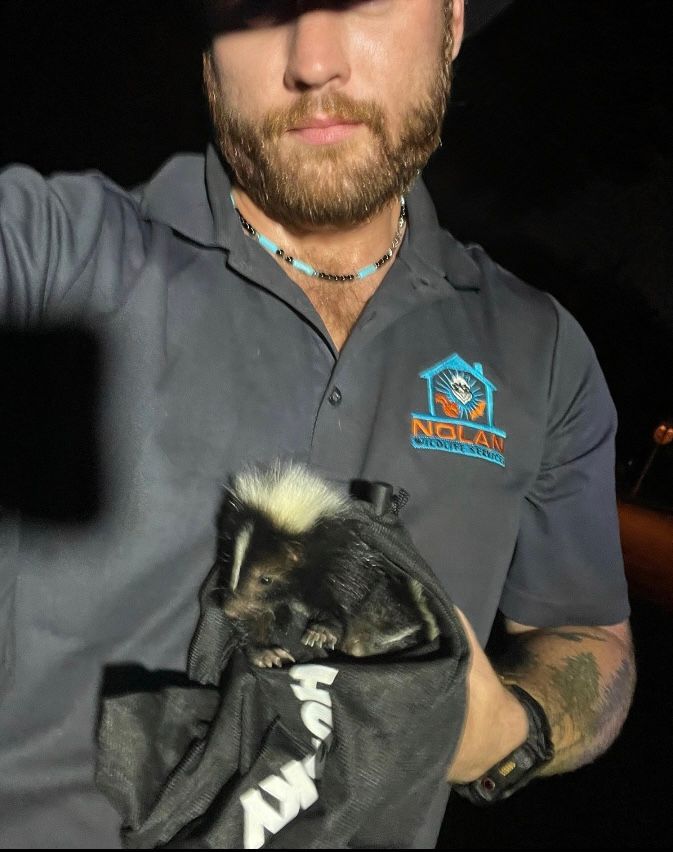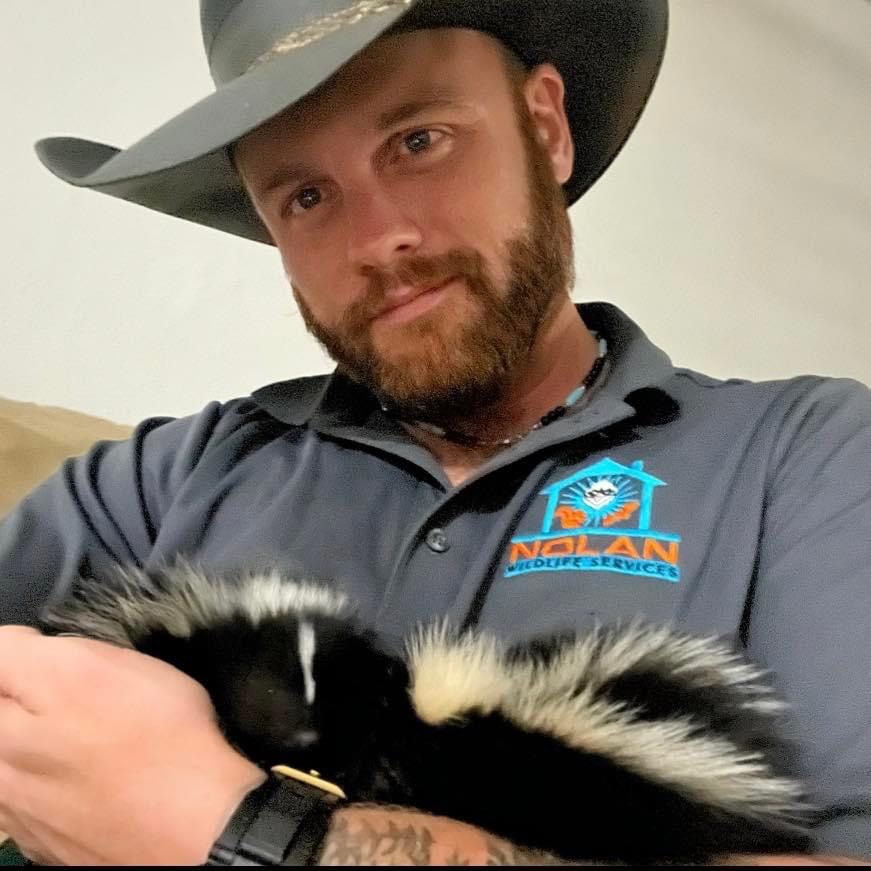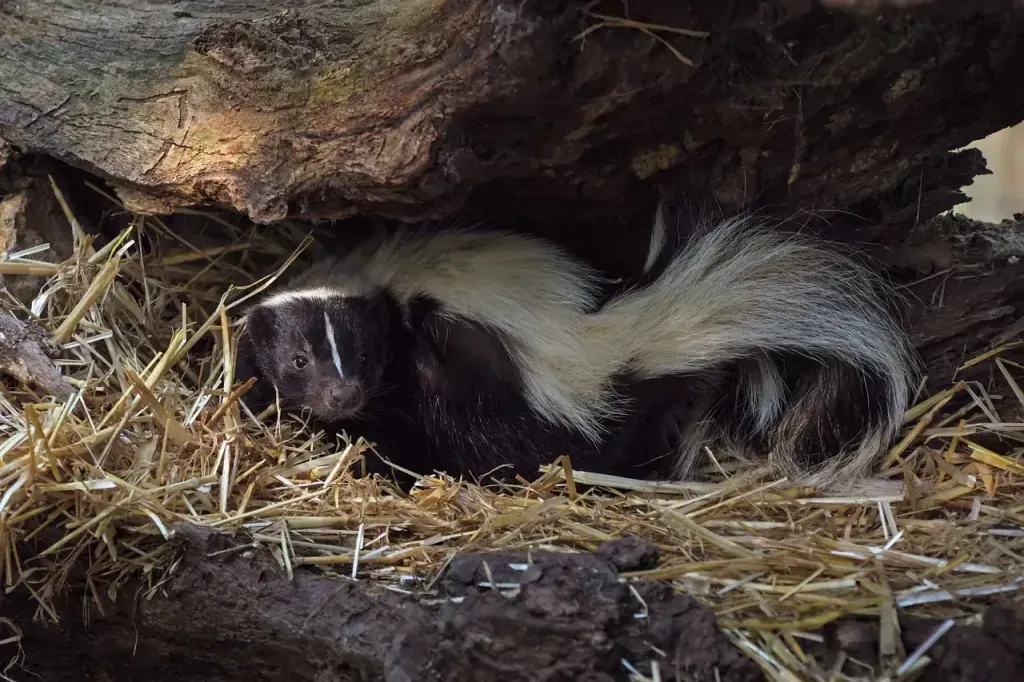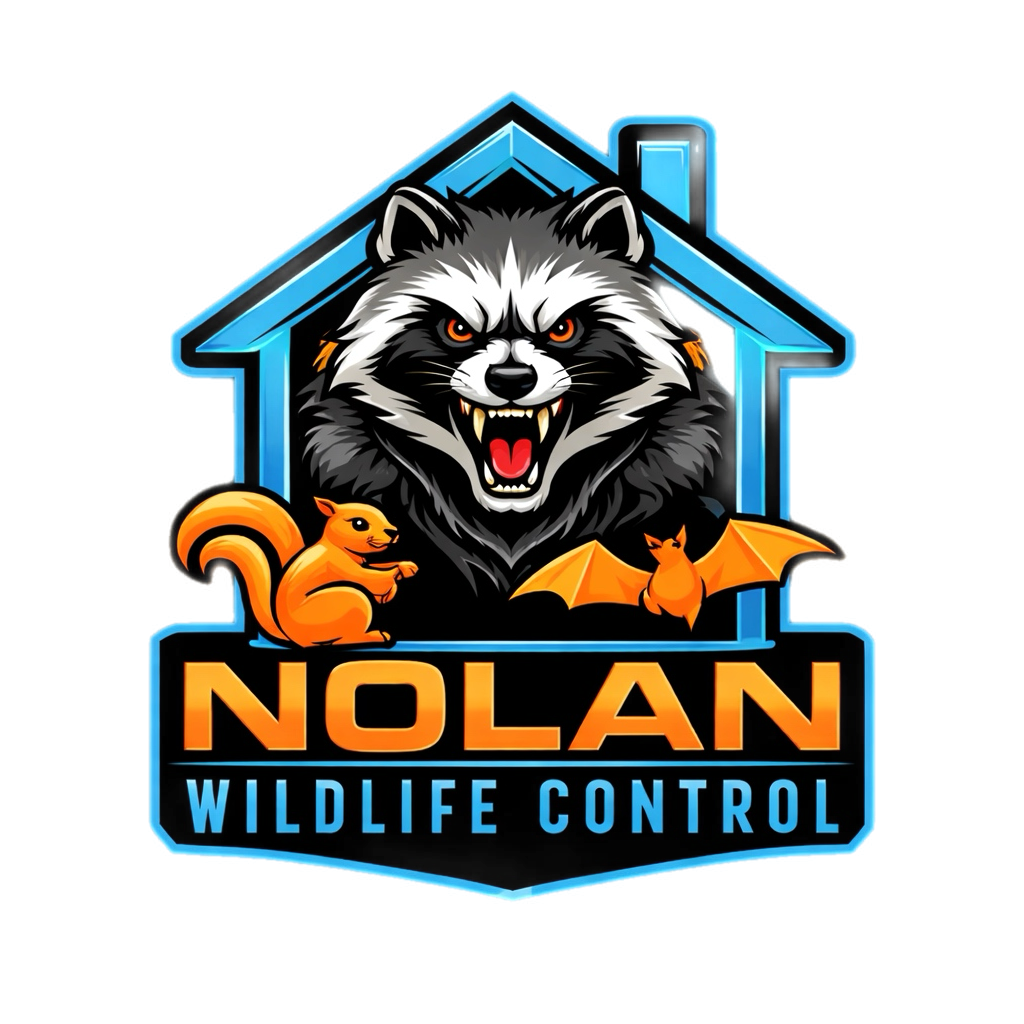Expert Skunk Removal Services
Our experienced team is dedicated to safely trapping and relocating skunks, ensuring your property remains free from unwanted wildlife.
Skunk Wildlife Control
At Nolan Wildlife Control LLC, we understand that skunks can be a nuisance, especially when they invade your property. Our team specializes in humane skunk removal and prevention strategies tailored to your specific needs. We utilize effective trapping methods and exclusion techniques to ensure these creatures are safely relocated, minimizing the risk of odor and damage to your home. With our comprehensive clean-up and damage repair services, we help restore your property to its original condition, providing peace of mind for residents in Katy, Texas, and the greater Houston Metropolitan Area.
Skunk Facts

Skunks are fascinating creatures known for their distinctive black and white fur and their infamous ability to spray a foul-smelling liquid as a defense mechanism. These nocturnal mammals are primarily found in North America and play a vital role in the ecosystem by controlling insect populations and dispersing seeds. Despite their reputation, skunks are generally shy and prefer to avoid confrontation. Understanding their behavior and habitat can help in managing human-wildlife interactions effectively.

What do skunks eat?
Skunks are omnivores, meaning they eat both plants and animals. They are opportunistic feeders, adapting their diet based on what's available in their environment. Their diet varies seasonally and by location, but generally includes insects, small mammals, fruits, nuts, and even carrion.
Are skunks dangerous?
While skunks are generally not aggressive and prefer to avoid confrontation, they can be dangerous in a few ways.
1. Skunk Spray:
Skunks are well-known for their ability to spray a foul-smelling liquid as a defense mechanism.
This spray can cause temporary blindness and irritation if it gets in the eyes.
The smell is notoriously difficult to remove and can linger for days.
Skunks can spray accurately up to 15 feet.
2. Disease Carriers:
Skunks are one of the primary carriers of the rabies virus in North America.
Rabies is a deadly disease that affects the central nervous system.
Skunks can also carry other diseases like leptospirosis, canine distemper, and parasites like fleas and ticks.
3. Bites and Scratches:
While skunks generally prefer to spray, they may bite or scratch if they feel cornered or threatened.
Any bite or scratch from a skunk should be taken seriously due to the risk of rabies and other infections.
4. Potential for Allergic Reactions:
In rare cases, some individuals may have severe allergic reactions to skunk spray, which could be potentially fatal.
How do skunks communicate?
Skunks primarily communicate through scent marking, vocalizations, and body language. They use scent to mark their territory and communicate with other skunks, and also employ a variety of noises and visual cues to convey messages, especially when threatened or agitated.
after trapping it is importaint to sanitize and fill the burrow (if present) to discorage other skunks from smelling previous skunks on your property and taking advantage of an empty burrow.
What is their habitat like?
As long as food, water and shelter are available, skunks can be extremely adaptable and thrive in many different areas. They can live in both rural and urban areas.
Skunks generally live in dens that they dig with their strong front claws. These dens will be holes that you find in your yard. Or they may find and live in an abandoned den built by other animals, such as a foxes or woodchucks. Sometimes they will live in hollow logs, woodpiles or brush piles.
Due to an abundance of food and water, skunks can often be found living in close proximity to humans. They can sometimes be found under porches, in sheds or in dark enclosures around homes. Garages, barns and other structures separate from a home can also be sites for a skunk den.
How can I prevent skunks from entering my property?
To effectively keep skunks out of your yard, focus on removing attractants, deterring their access, and creating an environment that's less appealing to them. This involves securing garbage, eliminating food sources, blocking potential den sites, and using repellents.
Skunk Behavior

Skunks are primarily nocturnal, meaning they are most active at night. They are solitary animals, but during mating season, males may travel long distances to find females. Skunks are also known for their excellent sense of smell, which they use to locate food and detect predators. Their spray, a mixture of sulfur compounds, can be a powerful deterrent, but it is used only as a last resort when they feel threatened. Its very important that you deal with skunks as soon as the problem arises. Skunks can cause a lot of damage to landscape and the foundation of your home. Removing skunks can be tricky and dangerous. A skunk can hit a target up to 12 feet away with accuracy when it sprays, and its spray can cause blindness. Therefore, we recommend calling a professional wildlife removal company before handling skunks on your own. Skunks carry rabies virus and should be avoided. If you see a skunk on your property that is stumbling, making strange noises, or active during the daytime call someone immediately. These are signs that the skunk may have rabies. If you are dealing with skunk problems give us a call today for fast service. We provide 24/7 trapping, removal, and wildlife prevention services. Call us today to schedule a free home inspection or follow the link below and submit! 832-696-4129
